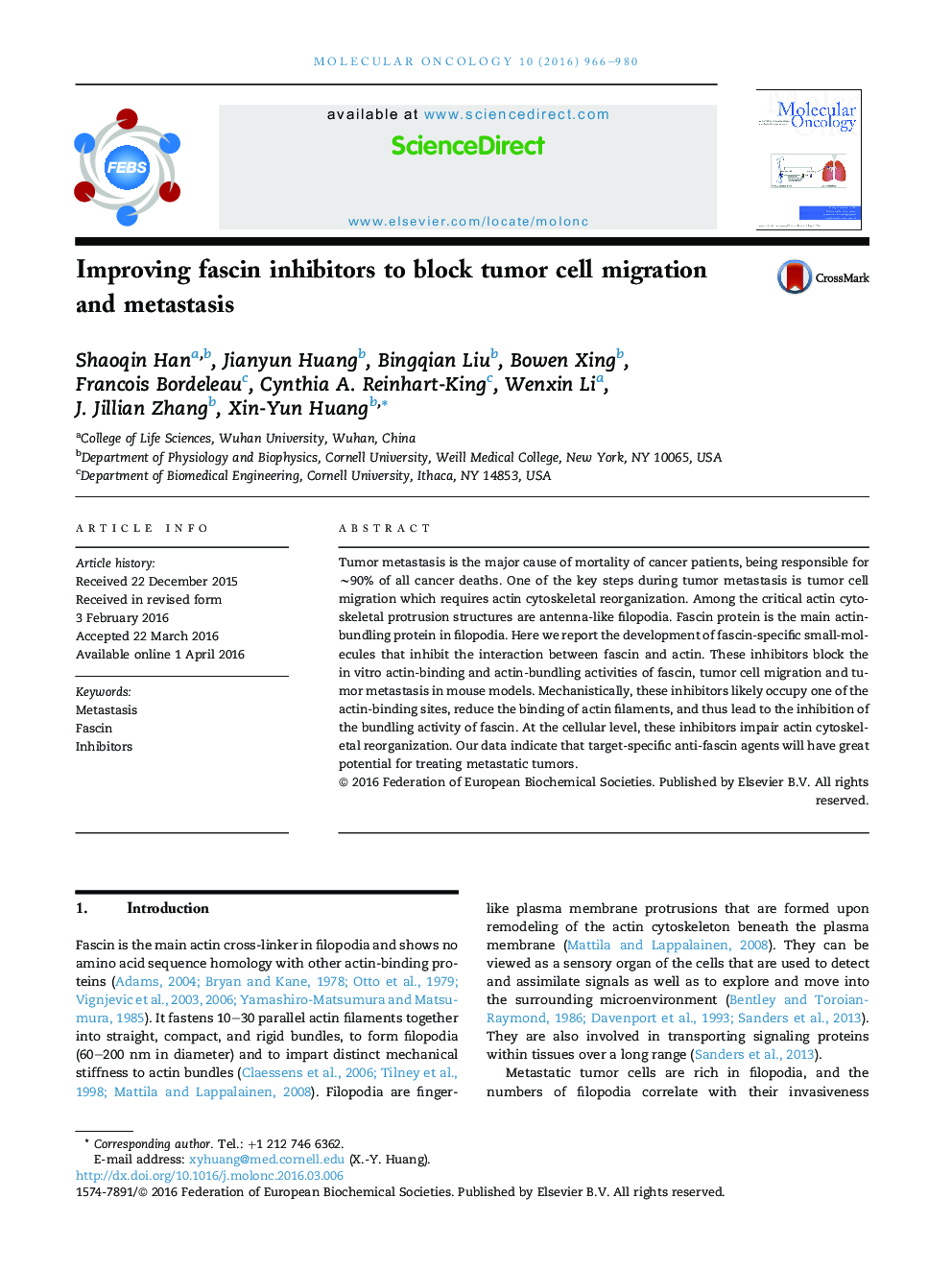| Article ID | Journal | Published Year | Pages | File Type |
|---|---|---|---|---|
| 5528597 | Molecular Oncology | 2016 | 15 Pages |
â¢Optimization of fascin-specific small-molecules that inhibit the interaction between fascin and actin.â¢These inhibitors decrease the actin-binding and actin-bundling activities of fascin.â¢These inhibitors block tumor cell migration and tumor metastasis in mouse models.â¢The inhibitors likely occupy one of the actin-binding sites on fascin.â¢At the cellular level, these inhibitors impair actin cytoskeletal reorganization.
Tumor metastasis is the major cause of mortality of cancer patients, being responsible for â¼90% of all cancer deaths. One of the key steps during tumor metastasis is tumor cell migration which requires actin cytoskeletal reorganization. Among the critical actin cytoskeletal protrusion structures are antenna-like filopodia. Fascin protein is the main actin-bundling protein in filopodia. Here we report the development of fascin-specific small-molecules that inhibit the interaction between fascin and actin. These inhibitors block the in vitro actin-binding and actin-bundling activities of fascin, tumor cell migration and tumor metastasis in mouse models. Mechanistically, these inhibitors likely occupy one of the actin-binding sites, reduce the binding of actin filaments, and thus lead to the inhibition of the bundling activity of fascin. At the cellular level, these inhibitors impair actin cytoskeletal reorganization. Our data indicate that target-specific anti-fascin agents will have great potential for treating metastatic tumors.
